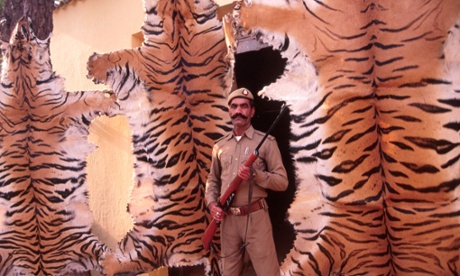
The case of the ‘Putin’s tiger’, Kuzya, has brought the dangers of poaching back into the spotlight. Russian president Vladimir Putin released the 19-month-old Siberian tiger in a remote forest in May this year. Five months later, one week ago, Kuzya swam across the frigid waters of the Amur river into China.
The event set diplomatic lines jangling. China scrambled to dismantle poachers’ traps and set up more than 60 camera traps in the area.
Kuzya and his siblings were orphaned after their mother fell victim to a poacher two years ago. Illegal hunting is one of the most serious threats to tigers; a dead tiger is said to be worth $10,000 (£6,300).
Even though Indian tigers rarely wander into China, they are in grave danger too. Poachers are more interested in tiger bones, an ingredient in traditional Chinese medicine, than pelts.
Last month, 40 tigers appeared to have gone missing in the Indian state of Maharashtra. Preliminary estimates of the census this year revealed there were fewer tigers than in 2010 in some wildlife sanctuaries. Poachers are feared to have targeted India’s national animal.
No comments:
Post a Comment